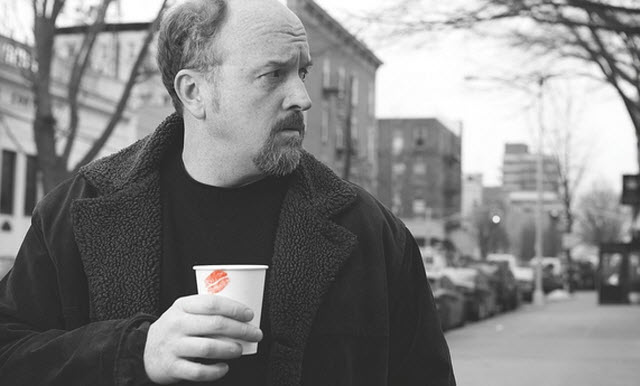
This is not the first time this season we’ve seen Louie use an extended flashback sequence. “Elevator Part 4” featured young Louie and young Janet deciding to get divorced before the implication of their first impending child. There were, at the time, mixed reactions to the device. While looking at the sequence in isolation, the acting is clearly fantastic and the mimicry of Louis C.K.’s mannerisms and inflections, in particular, are outstanding. How that piece fits into the “Elevator” story as a whole, though, is much more complicated than just being able to praise it on the technical level. Some people were understandably turned off by the disruption it caused in the flow of that episode–and, though I really enjoyed the whole thing, the shift between timelines is rough. “In the Woods” takes that idea and runs with it well beyond sight. The present day story of Louie catching Lily in the act of smoking weed is just there for framing. What “In the Woods” really is is a story about Louie’s adolescence, and how well it works for viewers will depend heavily on their willingness to get sucked into that story and leave the normal Louie behind.
The flashback scenes of “In the Woods” could function as a full-length feature film if C.K. had wanted to do that. These are two of the longest episodes of Louie to date, both clocking it at over 30 minutes (the average episode of Louie hovers around the 22-minute mark). More than their length being indicative of something bigger, the breadth and complete arc of the story of young Louie becoming involved with drugs is sharply poignant in the ways that good short stories and films are. There’s hardly any filler material (indeed, the present day scenes, if anything, take on that role). There are vivid characters in Louie’s family, friends and school acquaintances, including the faculty and staff. There is real conflict, both internal and external. And there is a beautiful resolution (of sorts) within the past tense narrative. So, like that sequence from “Elevator Part 4,” “In the Woods” functions just about flawlessly as an individual unit. Yet, scrutinizing it within the context of Louie makes it fall apart a little bit.
There’s nothing inherently interesting, to me, about the impetus of Lily’s drug use being the catalyst for this flashback story. And even more noticeable, there’s less interesting or touching or thoughtful about Louie’s final reaction to Lily, which is basically just to say “Hey, I love you. Whatever…y’know?” It’s a predictably Louie way of handling the situation, as is his “Your mother is going to kill you” line. That doesn’t mean the father-daughter relationship there isn’t engaging. Louie being Lily and Jane’s father in all four of these seasons has created some incredibly thought-provoking material and has made me feel like I understand some parts of what it means to be a father. “In the Woods,” however, is much more about Louie than it is about Lily, yet it feels like a major aspect of the a-ha moment is supposed to revolve around Lily, who is really just an empty presence in the episode. Hadley Delaney has been consistently wonderful in this role, but the material she’s given doesn’t leave her with much to act with–especially in comparison to some of the dialog Ursula Parker got just a few weeks ago. So, yes, this falls in line with how this season is testing Louie as a parent, but the fact that there’s not really any new information about that role for him here makes me think “In the Woods” would have worked just as well, if not better, had it been entirely set in the past.
And that’s mainly because of the aforementioned reasons. There is a full growth seen on-screen for Louie. Louie tells Lily to say goodbye to childhood, and that’s what we see take place in the past without it having to be stated directly. Young Louie’s scenes with just about every character, including the dealer played by Jeremy Renner (originally meant for the late Philip Seymour Hoffman), are stunning microcosms of the adolescent experience. Even something as stupid as the kid who keeps asking the science teacher fart-related questions is a perfect re-creation of how the mind remembers events as they happened at that age. The bully infrastructure, too, is so perfectly designed that he has kids’ glasses out on rent and strikes deals like “Either I beat you up now, or we’ll spread out the punches over weeks,” certainly with some kind of concept of interest implied there. Young adult fiction and its screen adaptations are rarely this accurate and insightful over a much larger surface of content, which is another way of saying–again–that Louis C.K. taps into the television format better than any other showrunner out there by pushing its limits and creating something that really just shouldn’t work as well as it does. That, of course, is a reaction that comes from a place where I’m more interested in the form than the content, so for viewers who sit down expecting to be entertained by what is happening rather than how, that reaction might seems like unwarranted praise. But for the episodes that precede next week’s season finale, I couldn’t be more satisfied with the risks C.K. takes with “In the Woods” and how they pay off in spades if viewed from the perspective of appreciating the medium of television and what it can do in the right hands.
[Photo via FX]
 Follow Us
Follow Us
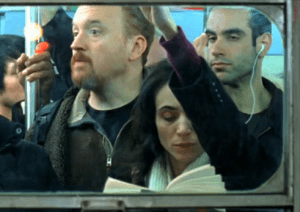
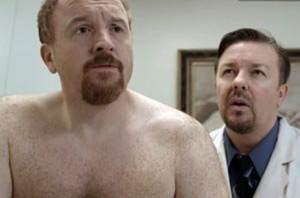
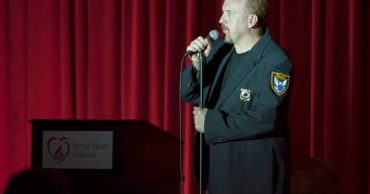

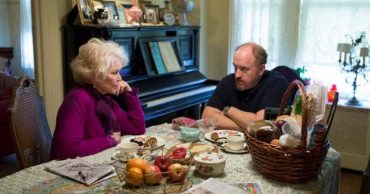
I disagree that the future aspect of the episode(s) served little purpose. The purpose I saw in them was a compare and contrast on how Louie’s parents handled his problems and how Louie handles the problems with his daughter.
First, Louie’s absentee father steps in and claims he’s taking charge of Young Louie’s life, which Louie counters with a strong rebuff pretty much disowning his own father causing the man to leave the home in silence. Then Young Louie has an encounter with his mother one evening as she screams at his recent behavior and even goes as far as to she hates him, causing Young Louie to run out of the home. (This likely also better connects the disparity between the young version of Louie’s mother and the older version we met in an early episode.)
The episode was about Older Louie looking back on what happened with him with his drug use and what was going on with his parents at the time and how they treated him and more importantly how he treated them.
Louie’s science teacher Louie has something of respect for to the point he felt the need to come clean to the man and feel guilty about letting him down. That’s the kind of connection Louie wants with his daughter, not the tattered connection he had with his own parents.
So at the end of the episode Louie looks at his daughter, having thought about his own experiences with his parents and the connection he had with his science teacher. He wants the latter with his daughter. He loves his daughter. So he doesn’t cuss her out, he doesn’t make her feel ashamed, guilty, or angry with him. He pretty much tells her she made a mistake, but he loves her and they have a touching hug.
There’s a good connection between the present-day events with Louie and his daughter and what’s going on with him and the adults in his life during the past events.